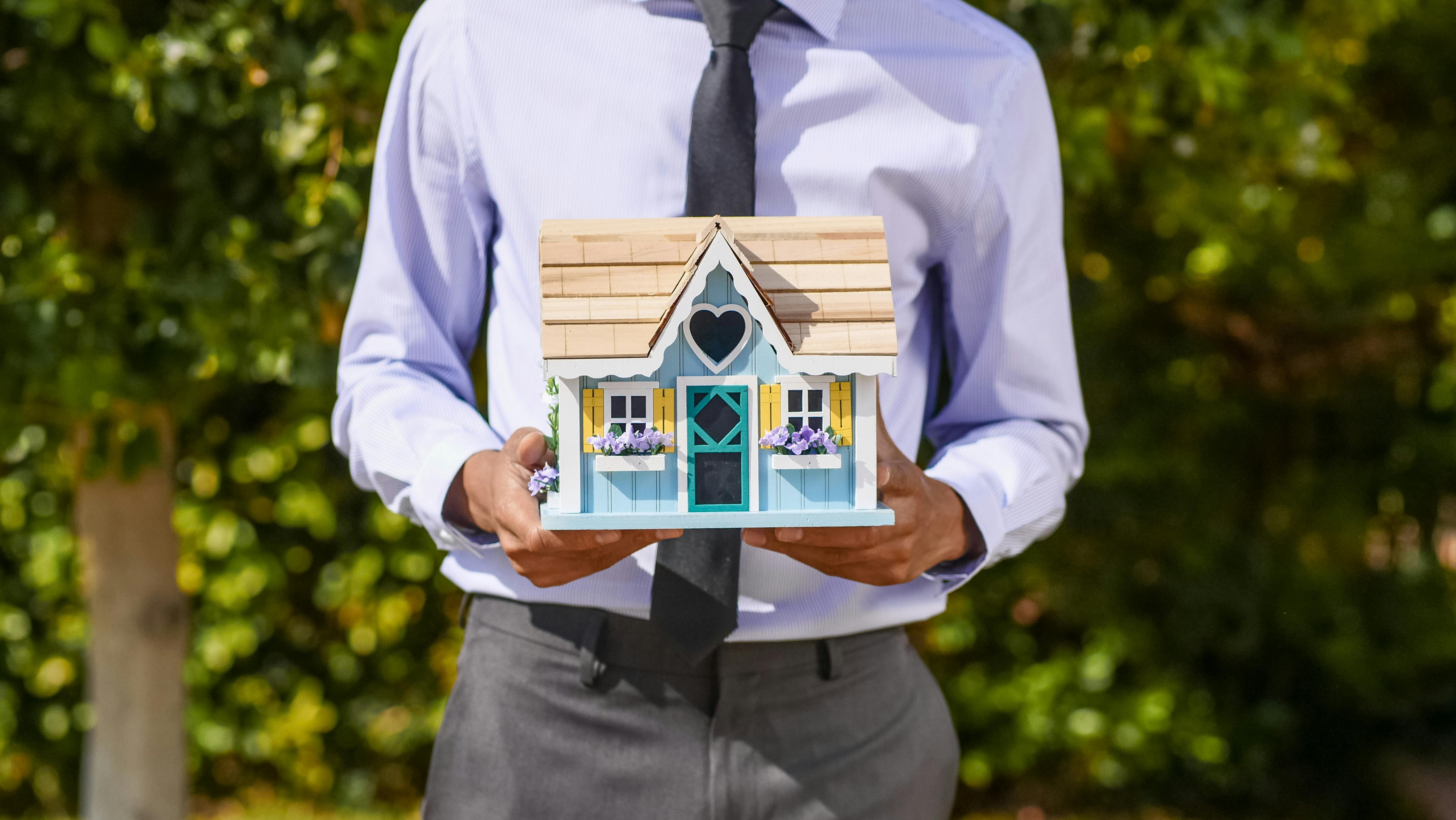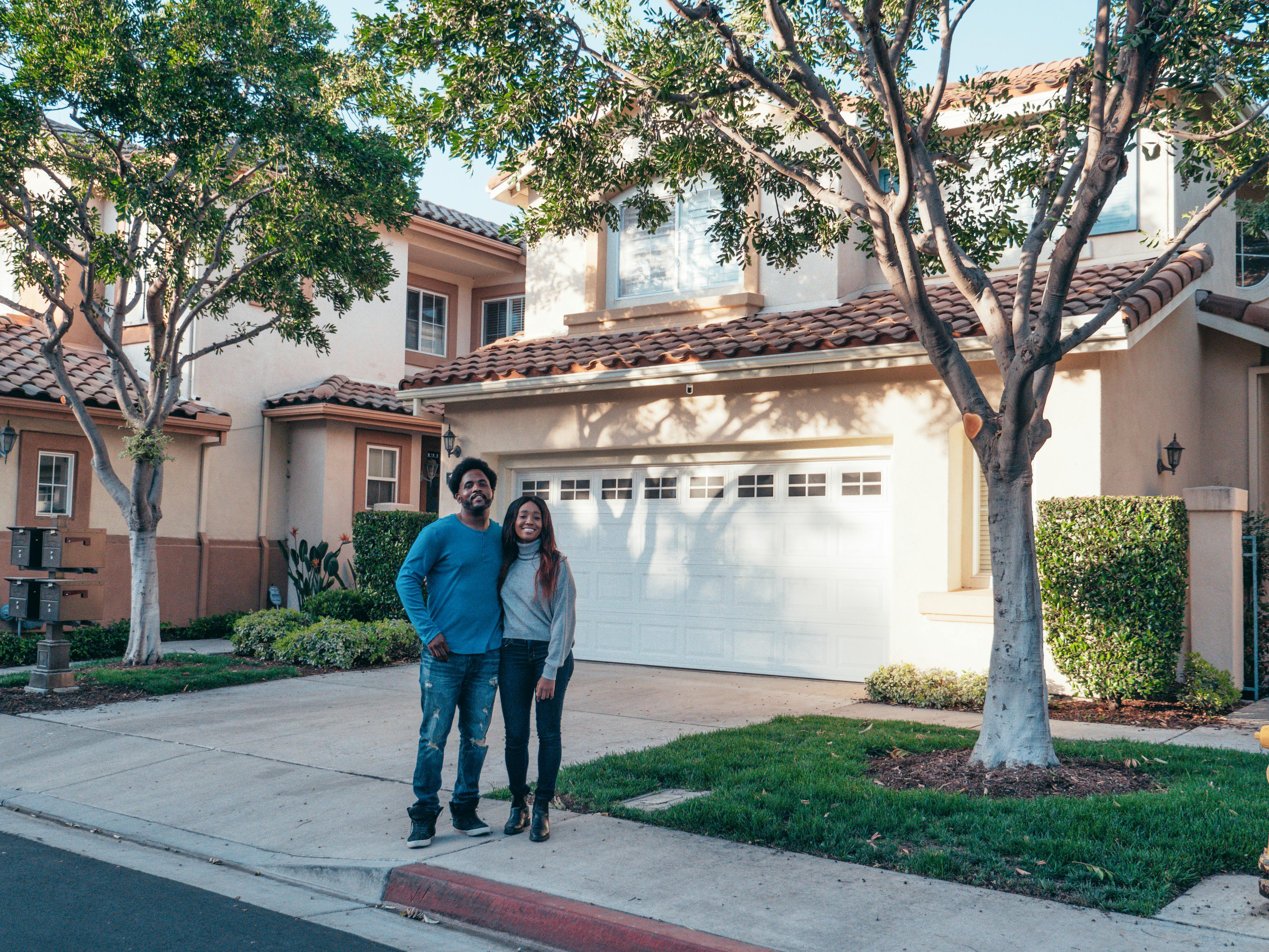First-Time Home Buyer Advice
April 3, 2024

Are you ready to take the exciting leap into homeownership? Buying your first home is an exciting (yet daunting) experience. Fortunately, with the right guidance and preparation, you can navigate this major milestone with confidence.
Right now, nearly 18K residential homes are listed on the market in Indiana.[1] Hopefully, you can take your pick and move into your new pad as soon as possible.
Here, you’ll find essential tips to help you buy your first home with ease. Whether you plan to settle in South Bend, Gary, or somewhere out of state, this is what you need to know.
The Potential Advantage of Being a First-Time Home Buyer
Since buying a home comes with many emotions, especially when it’s your first time, you must stay positive. You already know this is what you want. But have you considered all the perks of being a first-time home buyer?

Being a first-time homebuyer comes with several potential advantages, including:
- Access to special programs and assistance for those who qualify
- Potential tax advantages (consult your tax advisor)
- Building equity over time
- Stability and control over living arrangements
- Increased net worth potential
- Sense of pride and accomplishment
- Freedom to customize your space
- Potential for future rental income
Recommended: Free Homeownership Course at Centier To You
First-Time Home Buyer Advice
Now, before you set your sights on the house you want, learn as much as you can about the process. Here’s some advice to help you along the way.

1. Determine Your Budget
Understanding how much you can afford is essential when buying a home. Use online calculators or consult a mortgage lender to determine your maximum loan amount based on your income, expenses, and debt-to-income ratio.
In Indiana, as of March, 2024, the median price for a single-family home is $243,900.[2] This is up 4% from the previous 12 months.
Remember to consider the monthly mortgage payment, ongoing maintenance costs, and potential fluctuations in interest rates.
If you can’t afford a house yet, don’t give up. Plenty of ways may exist to pay off your current debt, save for a down payment, and increase your income. The important thing is to keep your eyes on the prize.
Recommended: Top 5 Home Ownership Tips
2. Get Your Finances in Order
Before starting the home-buying process, assess your financial situation. Start by reviewing your credit report and addressing any issues that may affect your ability to secure a mortgage. Aim to save for a down payment, typically from 3% to 20% of the home's purchase price.
Additionally, factor in other costs like:
- Closing fees
- Property taxes
- Homeowners insurance
With an accurate idea of what you can expect to pay, you’ll have a better experience with the home-buying process.
Recommended: What’s a Financial Checkup and Do I Need One?
3. Explore Mortgage Options
Depending on your financial situation, there are several ways to purchase a home. According to The National Association of Realtors, 80% of home buyers finance their purchase.[3] Home financing is typically done with a mortgage.
As a first-time homebuyer, you have several loan options available, including:
- Conventional loans
- FHA loans
- VA loans for eligible active duty members, veterans and surviving spouses
- USDA loans (rural areas only, income restrictions may apply)
Each type of loan has its own requirements and potential advantages, so it's essential to research and compare them to find the right fit for your financial situation.
Recommended: How much mortgage can I afford?
4. Start Saving Early
Beyond the down payment, it's wise to set aside additional savings for unexpected expenses or future home improvements. Consider opening a high-yield savings account or certificate of deposit (CD) to help your savings grow over time.
A savings account is a bank or credit union account where you can deposit money and earn interest over time. It's designed for long-term saving and offers a safe way to grow your funds.
A CD functions as a deposit account where funds are held for a predetermined period, known as the term, before becoming payable. During this time, the deposited money accrues interest. This can provide a stable and secure means to save for future financial goals.
Recommended: How Does a Certificate of Deposit Work? (CDs)
5. Work with a Knowledgeable Mortgage Loan Officer
Teaming up with an experienced mortgage loan officer can simplify the home-buying journey. They can offer invaluable guidance throughout the process.
Seek out a loan officer who will:
- Understand your specific requirements
- Ask about your financial goals
- Possess the expertise to navigate the complexities of securing a mortgage
Professional negotiation skills and market insights will be instrumental in finding the right financing options tailored to your needs.
Recommended: Find a Mortgage Loan Professional
6. Research Neighborhoods
Before committing to a home purchase, thoroughly research the neighborhoods you're interested in. In some cases, there’s a good reason why homes in certain areas are listed for more than others. It’s always wise to know what you’re getting into.
Consider factors such as:
- School districts
- Amenities
- Safety
- Commute times
Get to know the neighborhood as well as you can. This will ensure you find the right community for your lifestyle.
7. Don't Skip the Home Inspection
A home inspection is an essential part of buying a home. It reveals potential issues that may not be obvious. Even if it's not mandatory, never skip this step. Attending the inspection allows you to ask questions and gain a comprehensive understanding of the property's condition.
Knowing the home empowers you to make informed decisions about your purchase. By being present during the inspection, you can address any concerns, which ensures that you're making a sound investment in your future home.
8. Stay Flexible
Lastly, remain flexible throughout the home-buying journey. Unexpected delays or obstacles are common, so approach the process with patience and an open mind.
Remember that finding the right home may take time, but it's worth the wait for a place you'll love to call your own.
Frequently Asked Questions
How much do most first-time home buyers put down?
Most first-time homebuyers put down 3% to 20% of the home's purchase price as a down payment.
How much is a down payment on a 500k house?
A typical down payment for a $500,000 house would be around $30,000, based on an average of 6%.
How much house can I afford with $10k down?
With a $10,000 down payment, you could potentially afford a home of around $166,000, assuming a 6% down payment.
Does Indiana have a first-time home buyer program?
Yes, Indiana offers various first-time homebuyer programs and assistance initiatives to help individuals achieve homeownership. Consider the First Step, Next Home, and Step Down programs from the Indiana Housing and Community Development Authority.
Buy Your First Home With Centier By Your Side
Buying your first home is an exciting milestone that requires careful planning and consideration. By following these tips and leveraging Centier Bank's experience, you can confidently navigate the process and achieve your homeownership goals.
Ready to take the next step? Learn more about Centier Bank’s mortgage options and start your journey toward homeownership today.
Sources:
[1] https://www.redfin.com/state/Indiana/housing-market#supply
[2] https://www.redfin.com/state/Indiana/housing-market
[3] https://www.nar.realtor/research-and-statistics/research-reports/highlights-from-the-profile-of-home-buyers-and-sellers

